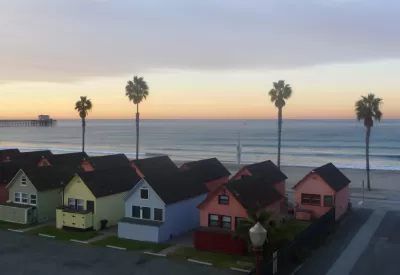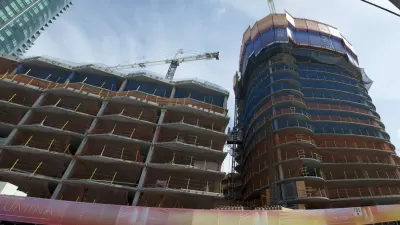Why local governments can not always be trusted to run housing policy.

When I write about how zoning increases rents and housing prices, I often get comments stating something like: "I realize that neighborhood elites often abuse zoning, but shouldn’t towns and cities be able to balance the interests of neighborhood residents with broader public interests?" Ten year ago, I would have said, "yes." But now, I favor broader, more radical remedies that limit municipal zoning rights. Why?
First, because under the current zoning system, it is irrational for a neighborhood or small municipality to do the right thing for the region's residents (that is, to allow new housing). Here's why: if my suburb or neighborhood is the only one to allow new housing, it gets flooded with any negative effects of new housing, but the impact of our virtuous deeds on regionwide housing costs is likely to be so small than even our existing renters won't see much of a benefit. Similarly, if my suburb or neighborhood is the only one to allow nonprofit or government-subsidized housing for poor people, my suburb gets all the costs of poverty (for example, a weaker local tax base) but may not benefit very much from a regional decline in homelessness. Thus, the town or neighborhood that allows new housing is essentially being a sucker.
By contrast, if every neighborhood allows new housing or subsidized housing, housing prices stay down for everyone and the rate of homelessness declines, benefiting the region as a whole. In a situation where what is rational for everyone is irrational for each individual municipality or neighborhood, the only way to ensure rational policy is to ensure uniformity: that is, for a higher level of government to take a meat ax to zoning across the region.
Second, many areas of law are based on the proposition that if a privilege has been scandalously abused, that privilege can be withdrawn by government or by a higher level of government. For example, in the abstract it might appear reasonable that states should limit the right to vote to people who can read, because illiterates might not be capable of voting responsibly. But in the pre-civil rights South, cities and states used literacy tests as a way to keep African-Americans from voting. To stop such abuse, Congress prohibited literacy tests in the Voting Rights Act. Zoning is like the literacy test: a policy that makes sense in principle, but that has been so scandalously abused that local governments can no longer be trusted with the privilege.
So if local jurisdictions cannot be trusted to balance interests, how far should states go to stop such abuse? It seems to me that even the most expensive housing markets do not suffer any obvious shortage of retail or offices or industry, so there is no reason for states to limit non-housing zoning. But where a housing crisis exists, local governments should no longer be allowed to use zoning to limit housing.

Planetizen Federal Action Tracker
A weekly monitor of how Trump’s orders and actions are impacting planners and planning in America.

Congressman Proposes Bill to Rename DC Metro “Trump Train”
The Make Autorail Great Again Act would withhold federal funding to the system until the Washington Metropolitan Area Transit Authority (WMATA), rebrands as the Washington Metropolitan Authority for Greater Access (WMAGA).

The Simple Legislative Tool Transforming Vacant Downtowns
In California, Michigan and Georgia, an easy win is bringing dollars — and delight — back to city centers.

The States Losing Rural Delivery Rooms at an Alarming Pace
In some states, as few as 9% of rural hospitals still deliver babies. As a result, rising pre-term births, no adequate pre-term care and "harrowing" close calls are a growing reality.

The Small South Asian Republic Going all in on EVs
Thanks to one simple policy change less than five years ago, 65% of new cars in this Himalayan country are now electric.

DC Backpedals on Bike Lane Protection, Swaps Barriers for Paint
Citing aesthetic concerns, the city is removing the concrete barriers and flexposts that once separated Arizona Avenue cyclists from motor vehicles.
Urban Design for Planners 1: Software Tools
This six-course series explores essential urban design concepts using open source software and equips planners with the tools they need to participate fully in the urban design process.
Planning for Universal Design
Learn the tools for implementing Universal Design in planning regulations.
Smith Gee Studio
City of Charlotte
City of Camden Redevelopment Agency
City of Astoria
Transportation Research & Education Center (TREC) at Portland State University
US High Speed Rail Association
City of Camden Redevelopment Agency
Municipality of Princeton (NJ)






























